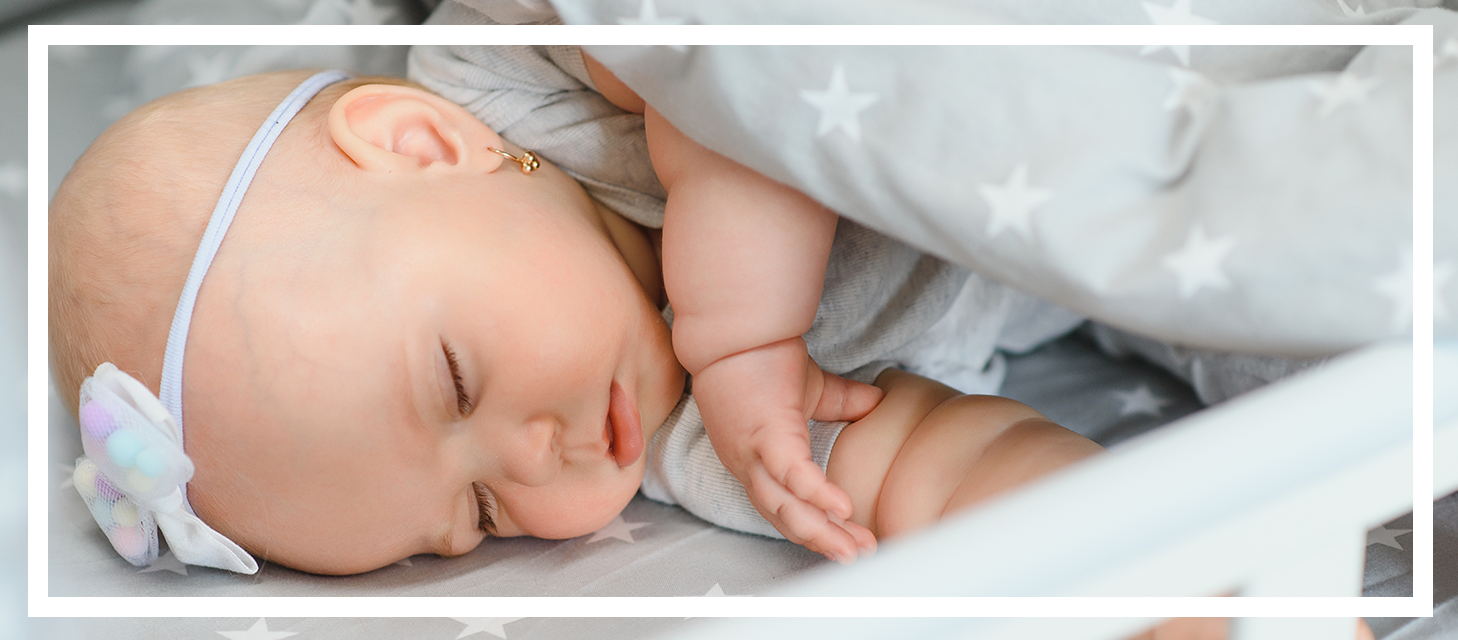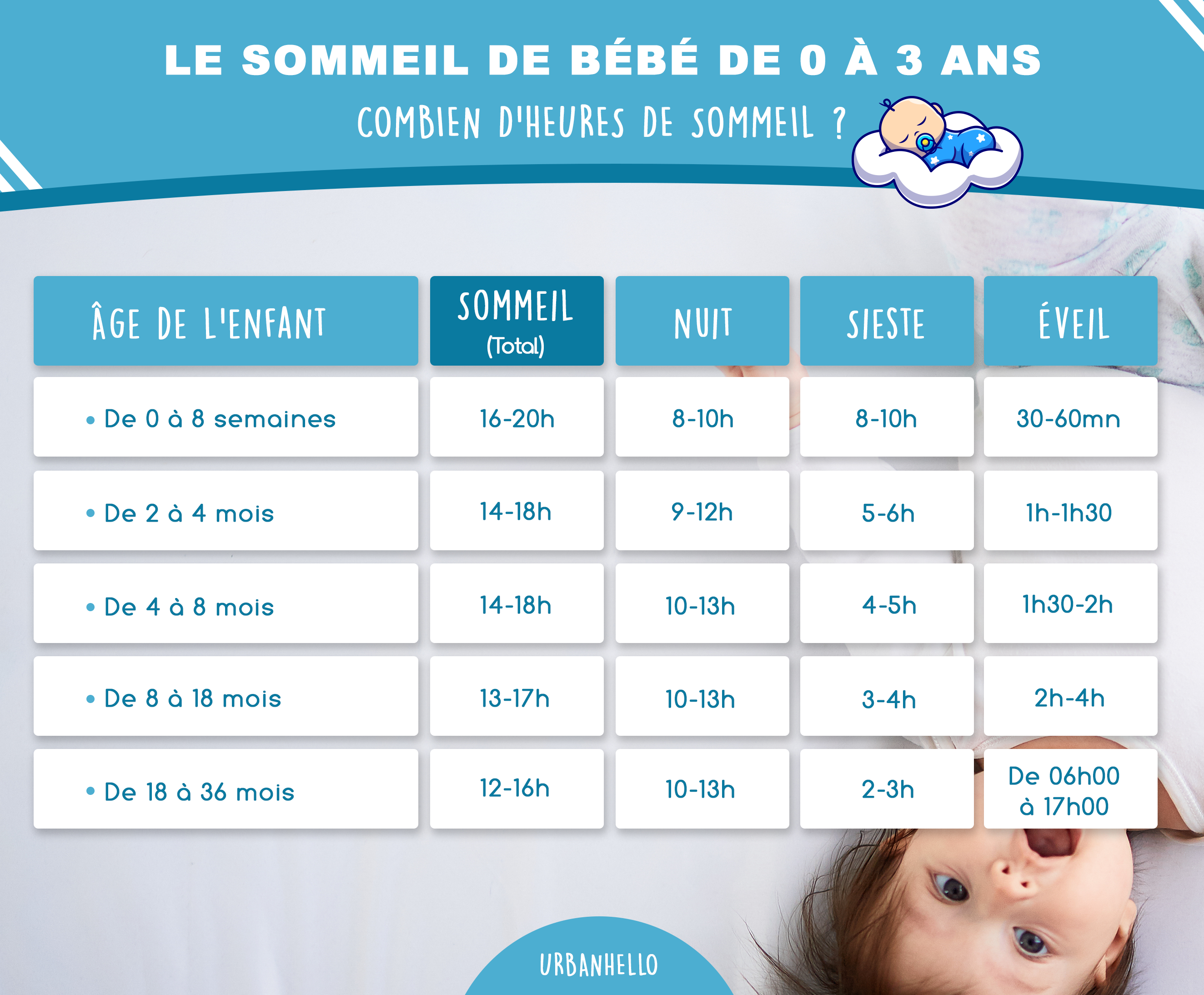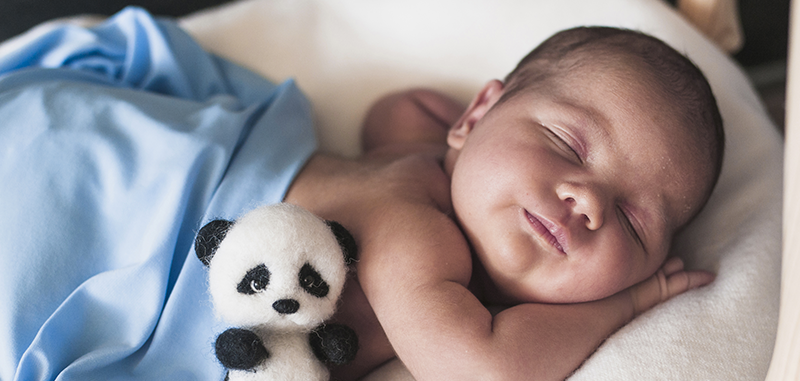Baby sleep: guidelines and tips - UrbanHello

Congratulations! You've just welcomed your little one home and are about to experience some truly wonderful moments as new parents.
But the coming months will also bring their fair share of big changes and a need to adjust to your baby's unique needs. So it's perfectly normal to have lots of questions.
And one of the biggest concerns for most parents? Baby sleep. When will my baby sleep through the night? Is it safe for my baby to sleep on their tummy? How can I help my baby sleep better?
It’s no secret that good sleep is essential for healthy growth. But a well-rested baby also means more rested parents—and a happier, more balanced family life.
In this article, we’ll walk you through each stage of your child’s sleep development from birth to age 3, and answer the most common questions parents ask about sleep training baby.
Baby Sleep: The First Month
During their first month, babies sleep a lot—on average, 16 hours out of every 24. But every baby is different. Some newborns may need up to 20 hours of sleep, while others get by on just 14 hours. Both are completely normal.
It’s also worth remembering that these early patterns don’t necessarily predict your baby’s long-term sleep quality.
To help you get a clearer picture, here’s a simple guide to average baby sleep needs during the first weeks:

Of course, baby sleep is very different from adult sleep.
Here are a few key points every parent should know:
At this stage, babies typically sleep in stretches of 3 to 4 hours before waking for about 30 to 60 minutes. This sleep pattern, common in the first months of life, is known as the “ultradian rhythm.”
Unlike adults, who begin sleep with a quiet (deep) phase, babies start off with active sleep. As your baby drifts off, you may notice small movements in their fingers and toes, arm and leg twitches, stretching, grunting, yawning—even a flushed face. Their eyes move beneath the eyelids and may even open for a few seconds.
However, if your baby is fully awake and hungry, they’ll move their entire body and keep their eyes wide open. It’s important to tell the difference and avoid waking your baby if they’re actually sleeping. After active sleep, babies usually transition into a calm awake state, followed by a feeding.
If you’d like to learn more about baby sleep at 1 month and get our expert tips, check out our full article here: baby sleep at 1 month.

Baby Sleep: From 1 to 6 Months
Although baby sleep is still quite different from adult sleep, it evolves rapidly—great news for sleep-deprived parents!
Starting from the end of the first month, babies gradually begin to sleep for longer stretches—up to 6 hours in a row at night. By around 3 months (at the very earliest), some babies may sleep as long as 9 hours. Of course, these are just averages—every baby is different when it comes to sleep.
Here are the main characteristics of baby sleep between 1 and 6 months:
It’s important to help your baby understand the difference between day and night—if possible, by gently exposing them to natural daylight during waking hours and avoiding overly dark environments in the daytime. Of course, only as long as it doesn’t disrupt their sleep!
Regular feeding times, play sessions, and outdoor walks all act as natural time cues that help your baby adjust to this new rhythm.
Baby Sleep: 6 Months and Beyond
Your baby is growing fast! By 6 months, most babies still need 3 to 4 naps a day. This usually drops to two naps around 12 months, and then to just one nap by 18 months.
Your little one still needs plenty of sleep—an average of 15 hours per day. And they'll continue sleeping a lot for quite some time. In fact, it's not until around age 4 that their sleep needs begin to change more gradually.
There are still some important things to keep in mind during this stage:
They may also have nightmares or simply feel afraid of falling asleep. This is a phase you’ll want to keep a close eye on, and don’t hesitate to consult a specialist if your little one isn’t getting the amount of sleep they need.
Don’t worry—this is completely normal.
👉 Studies show that 40% of children wake up at least once a night, and 20% wake up twice. It's usually not a concern unless your child needs your help to fall back asleep, which can disrupt the whole family’s rest on a regular basis.
Our Tips for Better Baby Sleep
Baby sleep is often one of the biggest concerns for parents. Understanding how it works is the first step toward peaceful nights.
But sometimes, even with the best intentions, a few simple strategies can make all the difference when your baby struggles to fall asleep. Here are our top tips to help you stay prepared for anything once nighttime rolls around!
- PATIENCE IS KEY: Every parent dreams of quiet nights and fewer wake-ups from the very first weeks. But it's important to remember that it’s normal for a newborn to have trouble falling asleep—and to cry. Be patient: around 5 to 6 months, your little one will start finding their rhythm and may begin sleeping 8 to 9 hours in a row.
- ESTABLISH A BEDTIME ROUTINE: For babies, everything is new—including sleep! They’re learning the difference between day and night, and developing their internal rhythm. Each step of the bedtime process plays a crucial role in helping them fall asleep. Without being too rigid, it’s important to create a consistent routine. It gives your baby predictable cues that help them feel calm and secure. Over time, this makes falling asleep easier—and nights more peaceful. Plus, it’s a special bonding moment for you and your baby.
- BEWARE OF SLEEP DEPENDENCIES: When setting up a routine, some habits can create sleep associations that prevent your baby from falling back asleep without help. For example, giving a bottle right before bed may teach your baby to link feeding with sleep. Later, if they wake up and you're not there to feed them, they may struggle to fall back asleep—not out of hunger, but because they need the bottle to soothe. The same goes for pacifiers if they fall out during the night. If your baby has trouble settling, try shifting the feeding or pacifier slightly earlier—about 15 to 20 minutes—so they learn to fall asleep independently. You can also give the last bottle outside of the bedroom to break the bottle-sleep association.
- DON’T SKIP NAPS: A well-rested baby during the day is more likely to sleep well at night! Naps are essential, and sleep issues at bedtime can often be linked to nap problems. If sleep is tricky, start a simple log where you note nap times, their length, and bedtime. Also leave space to jot down comments about sleep quality. Unlike adults, overtired babies from short naps can struggle more to fall asleep. Naps that are too close to bedtime can also interfere with nighttime sleep.
- UNDERSTANDING CRYING: Crying is your baby’s main way of communicating—and it’s totally normal! Many babies cry a little before falling asleep. If your baby’s cries are soft and they’ve just been put down, wait 30 seconds (no more) before stepping in. This gives them a chance to self-soothe and fall asleep gently, without too much stimulation.
- THE SLEEP TRAIN EFFECT: Your baby’s “sleep train” comes around every 30 minutes. So if they wake up at night, it’s completely normal that they can’t fall back asleep right away! Keep this in mind if they seem fussy after you’ve comforted them—it’s okay for them to need a bit of time before they catch the next “sleep train.”
- SPOTTING SLEEP DISRUPTORS: If your baby is struggling to fall asleep, something might be bothering them. Here are some common sleep disruptors to look out for:
• Colic: Your baby’s digestive system is still developing, and gas or tummy discomfort can make it hard to settle. If their belly seems bloated or they’re gassy, try gentle tummy massages. If the issue is frequent, your pediatrician may recommend anti-spasmodics.
• Environment: As bedtime approaches, everyone should help create a calm, soothing atmosphere. Lower the lights, reduce noise and movement, and avoid stimulating toys. Flashy mobiles or noisy toys can keep your baby from winding down or even wake them in the night. - SEEKING PROFESSIONAL SUPPORT: If sleep issues are becoming overwhelming and affecting family life, it’s a great idea to speak with a specialist. A fresh perspective can help you understand what's getting in the way of your baby’s sleep. Often, small changes to your routine can lead to big improvements in just a few weeks!
Discover REMI
THE SMART BABY MONITOR 😊
REMI and its app bring together everything you need to manage your baby’s sleep!
Its mission? Helping families sleep better — from birth up to age 10.
I bought REMI for my 4-year-old son who didn’t want to sleep alone anymore after his little sister was born. Thanks to the remote wake-up system and bedtime stories I can play from a distance, the issue is completely resolved! I 100% recommend this purchase!






 White noise for baby : a scientific research !
White noise for baby : a scientific research !
 What are the positive effects of napping on memory?
What are the positive effects of napping on memory?
 When do babies sleep through the night ? Tips and tricks !
When do babies sleep through the night ? Tips and tricks !
 Night terrors in babies: don't panic!
Night terrors in babies: don't panic!
 1 Month Old Baby Sleep : Common Questions
1 Month Old Baby Sleep : Common Questions